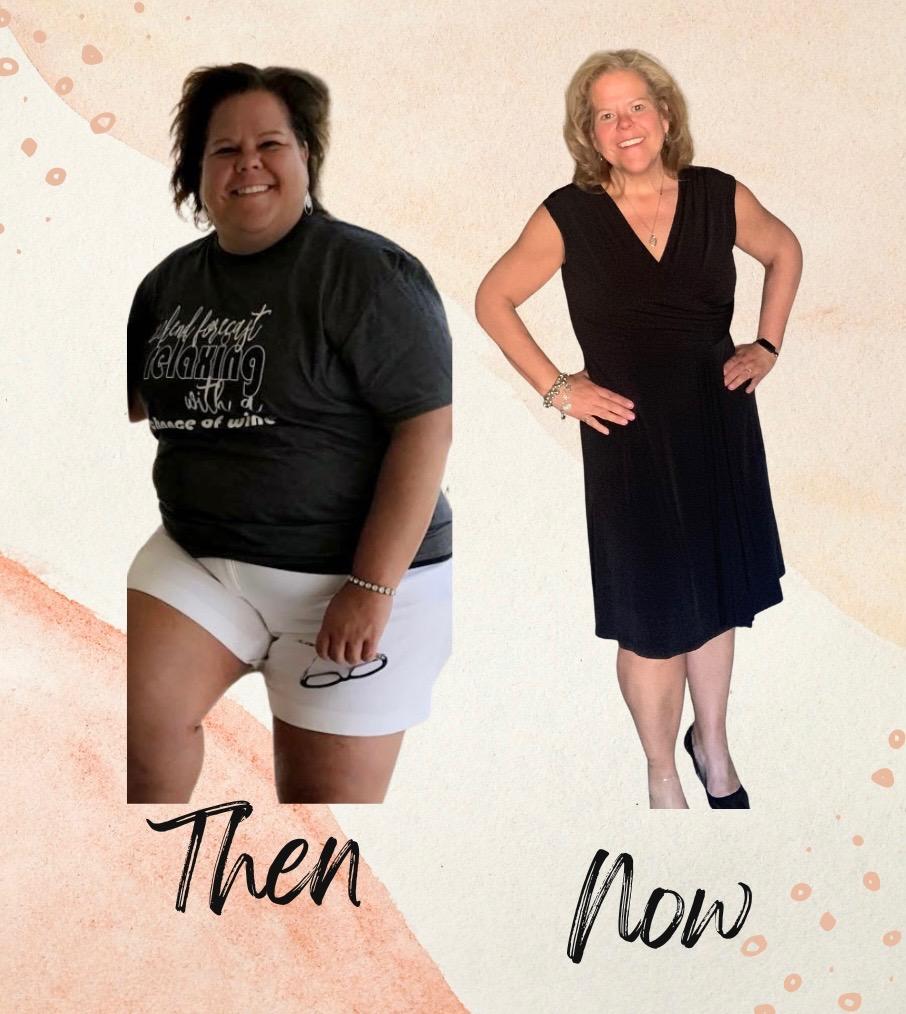Why does this happen? How can one get back on track?
Did you know that 80% of people give up on their New Year’s Resolutions or goals by February? These goals may range in life areas such as finances, nutrition, exercise, relationships, career, family and/or community involvement.
Why do people end up giving up on the goals they were so motivated about at the beginning of the year? There are several reasons this can happen, two of which I will discuss below, with suggested alternative mindsets that could help.
SUPER-SIZED GOALS
We have all heard of Super Sizing the meal you might buy at a fast-food restaurant—this approach happens with goals, too! Just like selecting super-sized meals does not have a good outcome, neither does super sizing our goals. Typically, when a goal is TOO big it is overwhelming, and most people can’t seem to find the energy or motivation to even get started. This has often happened to clients that come to me for support in their health journey. As we talk about what they have tried in the past, it is apparent they had BIG goals, and sometimes even make some progress toward the goal, but can’t stick with it, because the goal was too big, and they didn’t have helpful tools or strategies to help them achieve their goal.
Area of Focus
Instead of setting a super-sized goal, perhaps you set an overarching area of focus. For instance, instead of saying, “I am going to eliminate my debt this year,” (phew! This could be huge for some of us!) perhaps you start with a goal of understanding your current spending and reducing your current spending 10%. As you make progress on that goal, then you set your next goal. Think of it as small milestones that help you continue in the direction of your overall focus area.
Will this Make any Difference?
You might be thinking, “why would this approach make any difference?” There are two main reasons this approach helps people achieve different results:
1) When you set smaller goals that help you on your bigger focus area, each month or quarter when you assess progress, you will likely feel more accomplished versus assessing yourself against the SUPER SIZED goal. This helps you build momentum or excitement to continue!
2) When you work towards the overall focus area with smaller goals, it gives you the ability to reshape/redirect your actions as you learn more and progress, so it provides more flexibility in how you accomplish your goals and you are less likely to throw in the towel all together.
UNREALISTIC GOALS
Setting goals that take you from 0 to 100, or nothing to everything is unrealistic. For instance, if your goal is set to exercise every day for 30 minutes, BUT your current state is only walking from house to mailbox to get the mail, going from ZERO to 100 overnight is not realistic. Typically, what happens is someone will start strong and maybe get 3 days in and then something happens, and they aren’t able to do it on day 4 or 5. Then self-talk takes over and we tell ourselves we failed, so why keep trying? This nature of setting unrealistic expectations leads to negative impacts on our self-confidence, because we start to believe we are not able to complete the goals we set for ourselves.
Something You Can Do
An alternative approach that my clients find helpful is to start with something you know you CAN do. For instance, if you currently are mostly sedentary but you want to work on moving more this year, perhaps the goal is to park in a spot that is furthest from the store to get more steps in OR decide to walk to the end of your block 2 times a week.
Something You Will Do
Once you have set your goal you should ask if it is something you will be willing to do, even on a day when you are exhausted. If you can’t say ‘yes’ to that question, then reassess and make it smaller. Remember, you can ALWAYS do more on days you are feeling extra energetic. Why does this work? Because when you consistently do the small things you will actually feel good because you were able to do what you said you would do and this starts a positive snowball on our self-confidence!
You Can Do It!
Two other areas I will touch on in a future post are the issues of setting up too many goals and not having strong support systems in place. Remember, even if you are off track with your originally intended goals/resolutions; step back, reassess and use these tips to help you get back on track. You CAN do it!

Peggy Norton is a health coach who is passionate about changing the health of our world, one person at a time. She is an experienced HR professional who reinvented herself by coupling her corporate background AND her personal health journey of losing over 100 pounds—thus rediscovering energy and self-confidence. Today, she is the active, involved Gigi she has always envisioned.


Great Peggy
Good reminder! We all can use this!
Great!
That was good!
So true Peggy 👏